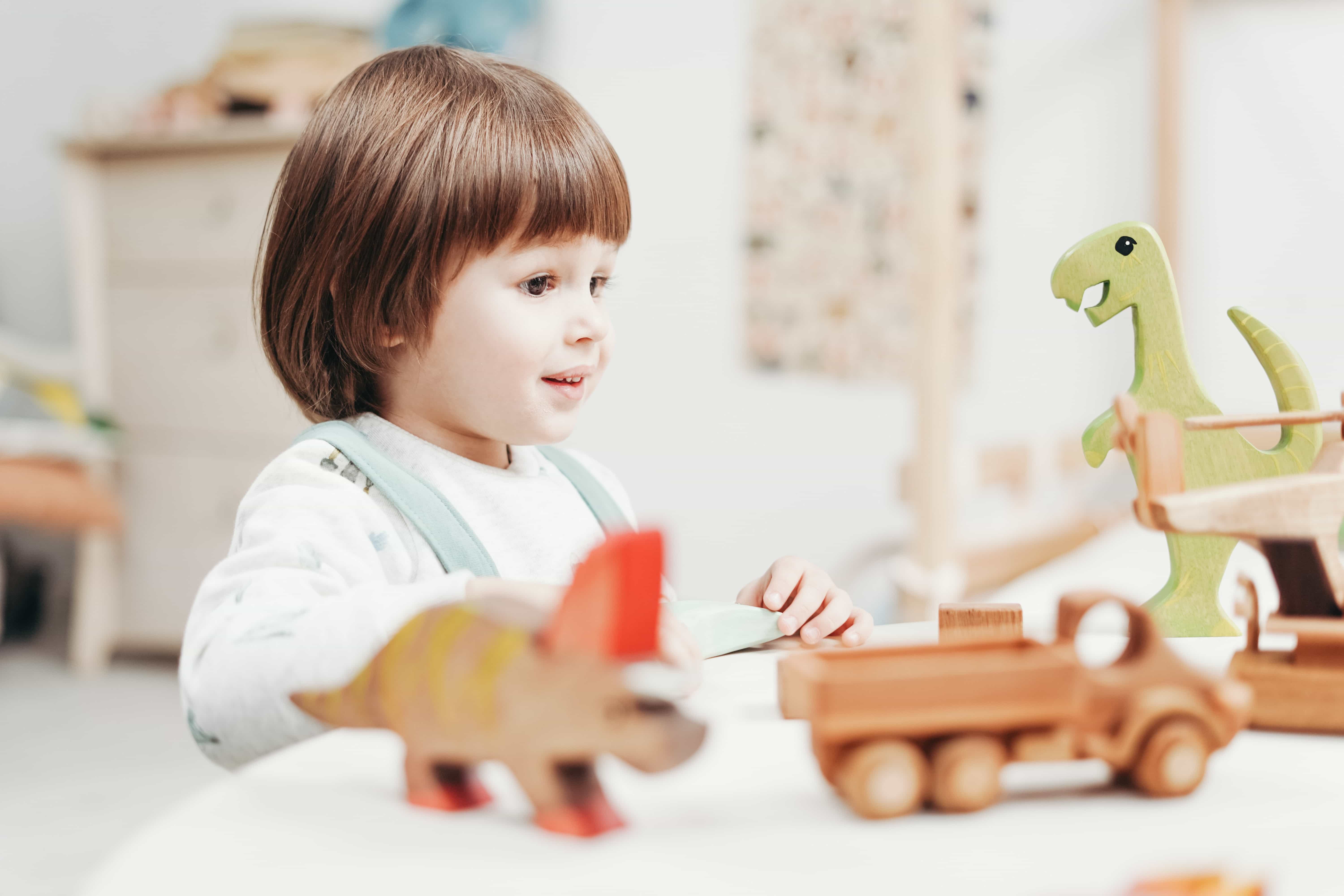How does discovery-based play support cognitive learning?

What is discovery-based play?
Discovery-based play forms the bedrock of children’s early development. It’s how your child makes sense of the world – and their role within it. It may involve acting out scenes from Frozen – 20 times a day - chasing baddies around the kitchen table or stroking your child’s arching back as they purr loudly, pretending to be a kitten. Whatever bizarre and wonderful situations we find ourselves in, it’s important to let your child express their interests, fears, and motivations through this form of discovery-learning in the early years.
The best play experiences come from your child’s unique interests. Maybe they spotted a train whizzing past which sparked an interest in transport. Or a visit to the doctors led to their bedroom becoming a hospital for sick teddies.
From the moment your child is born they are working out how life works. Play is a safe place for them to do this. It’s an outlet to express their emotions; it helps them solve problems and act out difficult experiences and it’s great for building relationships with others.
Be on hand to play with your child or to guide them - if they ask – and certainly think about ways to broaden their play experiences. But understand that this is ‘their world with their rules.’ So let them take the driver’s seat. It will be worthwhile in the long run.
Baby Play
In the early days, your baby doesn’t need toys. Their playtime will involve interacting with you – back-and-forth smiles; songs and lots of chatter. A rattle or cot mobile will offer them something interesting to look at – and they’ll enjoy listening to the sounds it makes.
Share a picture book. One with strong, bright colours – or touchy-feely surfaces - where your baby can use their senses to learn more about the world.
As they get older, you’ll watch them repeat actions over and over again: shaking on a rattle; pushing a button; banging blocks together; dropping something. This helps them understand cause-and-effect and the idea that a specific action leads to a specific response.
Here are some common play themes that your toddler or child might enjoy:
Mimicking me
Toddlers love to act out the roles they see in everyday life – becoming mummy, daddy, baby – or even the dog. Not only does it help them to recognise that others need to be fed, looked after and loved, but it’s a safe way for them to act out an emotional difficulty, such as dealing with a new sibling.
If your toddler enjoys pushing a pushchair and doll around the house, you may want to offer them a changing mat so that they can pretend to change the ‘baby’s’ nappy, or a small bag with a bottle inside. A plastic tea set and a blanket is a great idea for inviting family to a tea party outdoors.
A doll’s house with figures of people and pets inside is another way to explore this, on a smaller scale. This can be easily made from a cardboard box, some small blocks for furniture and some scraps of fabric for curtains and carpets.
Shop talk
You may remember setting up shops when you were young, organising tins and cereal boxes and playing the role of the shopkeeper. Support your child to set up a grocery shop. Take their lead and be the customer, asking where the orange juice is and making polite conversation while you’re at the counter. This is not only great for language skills and problem-solving but there are lots of opportunities to cover maths.
People who help us
Following a car break-down, you may find your child wants to re-live the experience of calling the AA and being rescued. Try setting up four chairs as a ‘car,’ a telephone to call the AA and a few tools so that your child can come along and fix the car.
Experiences that bring things to life are valuable to children – and you’ll see this reflected in their play. They’ll love a visit to the fire station. You may find them dashing around on their trike and putting out a fire with the hose pipe afterwards.
Fantasy play
You might have a superhero in the house – or a princess. Or your child could be spending a lot of time on all-fours, meowing. Bear with it. They are acting out scenarios that they need to make sense of. What does it feel like to be the goodie that saves the day? How calm it is, being a cat, snuggled up on the soft blanket by the fire and sleeping all day.
Rather than telling your toddler to get up off the floor, be sensitive to the way they’re choosing to explore their feelings. You could offer to take them to see a neighbour’s cat, if you don’t have one of your own, or give them snuggly blankets to lie on. You might even go so far as to offer them a bowl with water – or milk – and explain that cats drink with their tongues. YouTube videos of cats might interest them – and you could even show them a few yoga moves, arching your back into a cat stretch.
Every moment is a moment for learning, even if it might seem quite bizarre at times!
Symbolic play
As your child’s imaginary play skills become more complex, they will start to give objects symbolic meaning. For example, stones or twigs may become money and a wooden block could become a telephone.
Tidy-up time
It’s a great idea to get your child used to tidying up after they play. Sorting their toys – putting toy cars in one basket and dressing up clothes in another – helps with their problem solving and thinking skills, as well as having one less job to do at the end of a busy day!
